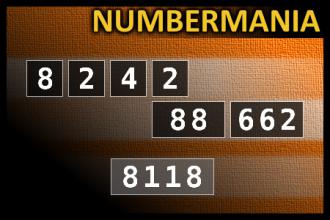Calculate the number 8118
NUMBERMANIA: Calculate the number 8118 using numbers [8, 2, 4, 2, 88, 662] and basic arithmetic operations (+, -, *, /). Each of the numbers can be used only once.Correct answers: 36
The first user who solved this task is Sanja Šabović.
#brainteasers #math #numbermania

